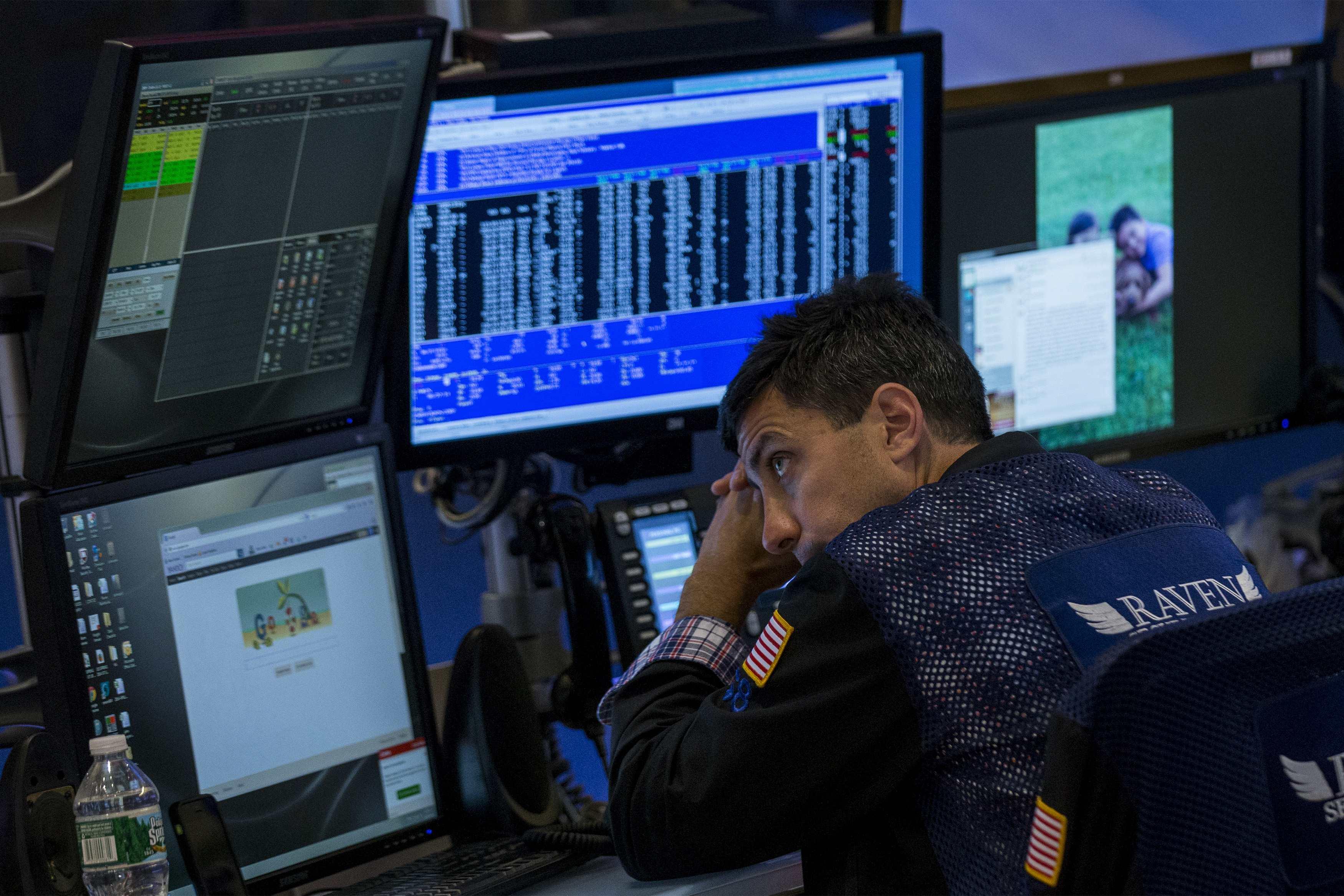Stocks Fall as Portuguese Bank Problems Rattle Risk Assets
Bareksa • 11 Jul 2014

A trader watches his screen just after the opening bell on the floor of the New York Stock Exchange. (REUTERS/Brendan McDermid)
European stock markets were hit hardest as trading in Banco Espirito Santo was halted after a 19 percent drop.
Bareksa.com - Stocks slumped worldwide on Thursday and investors flocked to safe-haven government bonds and gold on fears problems at Portugal's biggest listed bank could herald a wider slump for riskier assets.
European stock markets were hit hardest as trading in Banco Espirito Santo was halted after a 19 percent drop. The bank's largest shareholder suspended trading in its own shares and bonds due to "material difficulties" at its own largest shareholder.
Prices of benchmark U.S. government debt rose, the yen climbed to a five-month high against the euro and gold hit a three-and-a-half month high. The developments in Europe, following the recent collapse of a Spanish technology company, buttressed concerns that stock valuations were getting rich after a long streak of gains.
"There are a lot of people looking at the market gains in conjunction with valuations being pretty full, and trying to time their exit," said David Joy, chief market strategist at Ameriprise Financial in Boston.
He said the situation in Portugal was simply an excuse for that to get under way.
"I find it a little bit of a stretch to think that a bank problem in Portugal is causing this," Joy said.
Many U.S. stock market participants have called for a pullback, with the S&P 500 without a daily decline of 1 percent or more since April 10.
The S&P 500 index of top U.S. companies briefly traded down 1 percent. But it recovered substantially and closed 8.15 points, or 0.41 percent, at 1,964.68. The Dow Jones industrial average fell 70.54 points, or 0.42 percent, to end at 16,915.07. The Nasdaq Composite dropped 22.83 points, or 0.52 percent, to close unofficially at 4,396.20.
Small-cap names were harder hit, with the Russell 2000 Index of small stocks falling 1 percent.
Ten-year U.S. Treasury notes were off their highs but still up 1/32 in price to yield 2.539 percent. Prices of 30-year bonds turned lower after relatively weak results at a sale of $13 billion worth of an existing 30-year bonds and finished down 6/32 to yield 3.372 percent.
Treasuries have rallied this week on a global drop in stock prices, weak economic data in Italy and elsewhere overseas, and intensified fighting between militants in Gaza and Israel.
"There's a lot of reasons to find comfort in Treasuries right now," said Mike Lorizio, head of Treasuries trading at John Hancock Asset Management in Boston.
The yen gained 0.67 percent to 137.71 against the euro , the highest since Feb. 6, and was up 0.40 percent at 101.25 against the dollar, the highest since May 21.
Gold surged to 3-1/2 month highs. By 3:20 p.m. EDT (1715 GMT), the spot price of bullion was up 0.7 percent at $1,335.40 an ounce, after racing to $1,345.00, its highest since March 19.
Oil prices initially were pressured by weak U.S. gasoline demand and the prospect of rising Libyan supply. But Brent crude rebounded slightly after eight days of losses and U.S. crude recovered from a nine-day losing streak.
Brent gained 39 cents to settle at $108.67 a barrel. U.S. crude gained 64 cents to settle at $102.93 a barrel. (Source : Reuters)